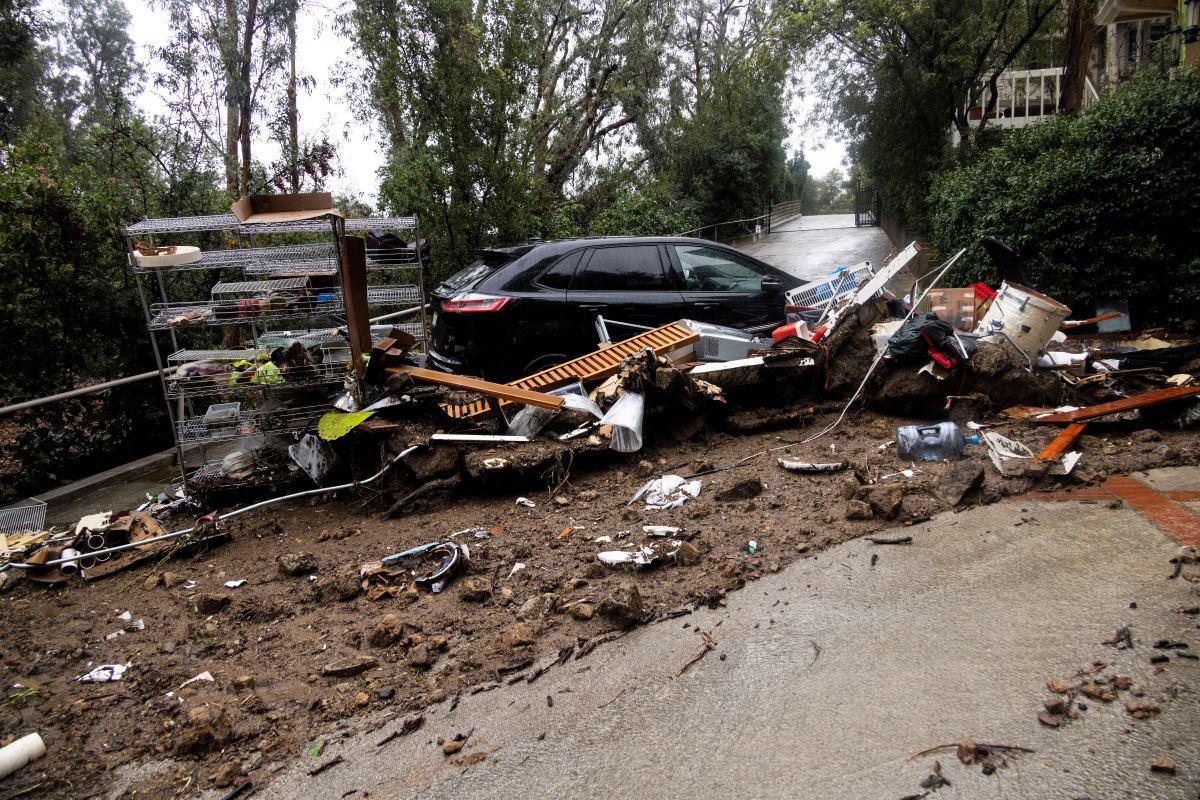Lingering atmospheric river soaks California, threatening more flooding, mudslides

LOS ANGELES - A deadly atmospheric river storm lingered over Southern California for a third day on Tuesday, soaking the region with steady rains that threatened to trigger more flooding and mudslides as the weather system slowly crept toward the Desert Southwest.
After a day of record-breaking rainfall across the Los Angeles area, a flood watch remained in effect for much of Southern California through Tuesday afternoon. A flash-flood warning was posted for the Orange County coast, and flood advisories were issued as far south as San Diego and the U.S.-Mexico border.
As rain continued to fall throughout Los Angeles, work crews and residents were cleaning up after the storm felled more than 250 trees and triggered 300-plus mudslides across the nation's second-largest city as of Monday night, authorities said.
Downed trees and utility lines knocked out electricity to hundreds of thousands of homes and businesses, including 156,000 utility customers who remained without power in Los Angeles alone as of Tuesday.
L.A. Fire Chief Kristin Crowley said at least three dozen buildings required inspection due to mudslide damage and hillside slope failures.
"Even though the rain may ease up a bit today, this storm continues, and that means we still need Angelinos to take precautions," Mayor Karen Bass told a news conference.
Prolonged downpours that dumped 6-12 inches (15-30 cm) of water have left the ground so "super-saturated" that it will take very little additional rain to trigger further landslides and debris flow, said Ariel Cohen, chief forecaster for the NWS office in Los Angeles.
The intense rainfall, with heavy snows in the mountains, was carried to California by a storm system meteorologists call an atmospheric river, a vast airborne current of dense moisture funneled inland from the Pacific.
The latest tempest, and a less powerful storm that hit California last week, also qualified as a "Pineapple Express," a type of atmospheric river originating from subtropical waters around Hawaii.
While such storms are not uncommon to the West Coast, meteorologists say they are likely to become more frequent and extreme over the next century if planetary warming from human-induced climate change continues at current rates.
Scientists say the prevailing El Nino weather pattern also may be contributing to some of the recent storm activity along the Pacific coast.
The latest storm kicked off in California with powerful winds gusting to 75 miles per hour (121 kph) and higher across northern and central California on Saturday, before spreading into South California early on Sunday.
At least three people were killed when wind toppled trees on Sunday in Sacramento, Santa Cruz and Sutter counties, authorities said. — Reuters




